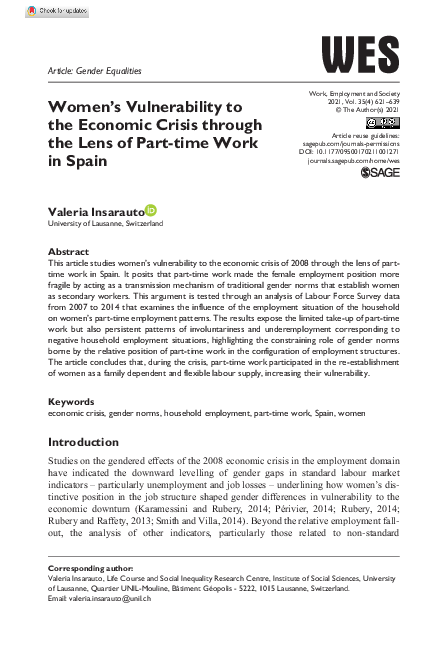Women's vulnerability to the economic crisis through the lens of part-time work in Spain

2021
35
4
August
621-639
women workers ; economic recession ; labour force survey ; part time employment ; household income
Gender equality & Women
https://doi.org/10.1177/09500170211001271
English
Bibliogr.
"This article studies women's vulnerability to the economic crisis of 2008 through the lens of part-time work in Spain. It posits that part-time work made the female employment position more fragile by acting as a transmission mechanism of traditional gender norms that establish women as secondary workers. This argument is tested through an analysis of Labour Force Survey data from 2007 to 2014 that examines the influence of the employment situation of the household on women's part-time employment patterns. The results expose the limited take-up of part-time work but also persistent patterns of involuntariness and underemployment corresponding to negative household employment situations, highlighting the constraining role of gender norms borne by the relative position of part-time work in the configuration of employment structures. The article concludes that, during the crisis, part-time work participated in the re-establishment of women as a family dependent and flexible labour supply, increasing their vulnerability."
Digital
The ETUI is co-funded by the European Union. Views and opinions expressed are however those of the author(s) only and do not necessarily reflect those of the European Union or the ETUI.